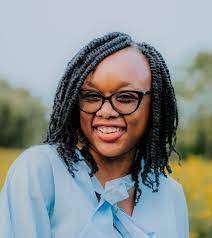
Small team of BIPOC clinicians will visit schools, mosques, cultural centres afternoons and evenings Jaleesa Bygrave says that while growing up, there weren’t any mental health supports tailored for youth who were Black, Indigenous and other people of colour (BIPOC).
Now a mental health worker herself, she’s part of a new mobile mental-health program in Hamilton that caters to them — and she says it’s already making a difference.
“A lot of them have expressed that it just feels so refreshing to have a space where they can openly talk about their experiences of racism … and being able to unpack that in a way that they don’t receive any judgment,” Bygrave said.
St. Joseph’s Healthcare Hamilton has unveiled YouThrive, a new mobile mental health program for BIPOC youth.
Lisa Jeffs, manager of the Youth Wellness Clinic (YWC), said the YWC spoke to BIPOC youth about managing racism last year and heard they needed more mental health supports.
The program will involve a small team of BIPOC clinicians who will make weekly visits to schools, mosques and cultural centres afternoons and evenings to meet directly with youth and their families.
YouThrive is partnered with the Hamilton Regional Indian Centre and Thrive Child and Youth Trauma Services.
Jeffs said the program will also provide anti-racist and anti-oppressive training to community agencies helping youth and families with mental health issues and addictions.
Jeffs also said health care and clinic settings have historically been sources of racism, noting how it isn’t common practice to ask about how race and racism are affecting someone’s health.
Chad McPherson and Michael Abraham, graduation coaches for Black students at Hamilton-Wentworth District School Board, said their students have been dealing with more mental health issues than they were before the pandemic.
“One thing school always provided for kids was a routine — how to develop routines, how to cope with certain things — but with the pandemic, it’s been an up-and-down cycle,” McPherson said. “It’s a lot to deal with.”
They also say there have been even more barriers to access support services.
“A lot of students I’m talking to want support from family doctors or want new doctors,” Abraham said.
“There’s been a lot more conversation around mental health, anxiety, depression.”
Hamilton Public Health Services has said people of colour made up some 50 per cent of local COVID-19 cases despite representing just 20 per cent of the city’s population.
Bygrave said she is already seeing 10 clients and is getting lots of referrals.


